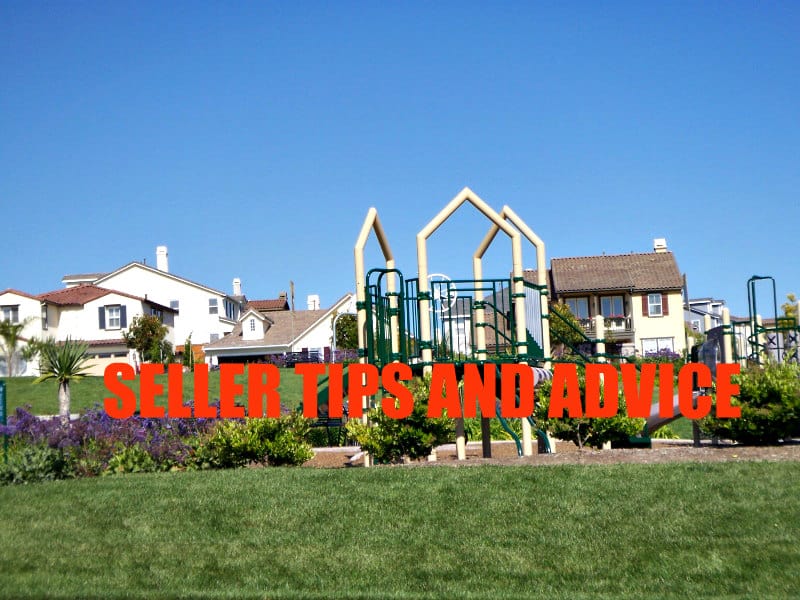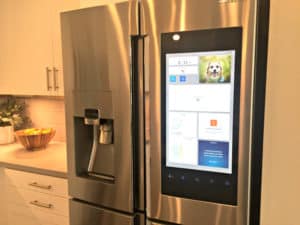
I’m assuming that as a home owner you are pretty smart. But this post is about Smart Homes and the technology that we are seeing more and more of all the time. You may have some in your house already.
Smart Home technology covers a wide range of products, starting with the HVAC system (e.g., a Nest Thermostat), to lighting, security (e.g., RING Video doorbell), appliances (like the Samsung Smart Refrigerator in the photo), the garage door and front door locks, electronics (TVs, stereo), voice command devices like the Amazon Echo, Alexa, and Google Home, robot vacuums, Smart Meters for gas and electricity utilities, pools and spas, and the list goes on.
Ideally these features are all Internet- linked, and controllable by an app on your phone or via the computer, or by your voice.
 We are hearing more discussion about Smart Home features and devices, which bring with them the potential issues of security and hacking. Someone possibly could hack into the system and open your garage door, as one example.
We are hearing more discussion about Smart Home features and devices, which bring with them the potential issues of security and hacking. Someone possibly could hack into the system and open your garage door, as one example.
As a seller or buyer, Smart Home technology raises some interesting questions, and the need to changes certain practices about disclosures and conveyance in real estate transactions. Here are some important issues to consider:
- What Smart Home devices in a home for sale should be disclosed as equipment in the home. A Nest thermostat? Home security? Electronics that might include a whole house audio system? Smart technology appliances (do they stay or go with you when you move?).
- The need to disclose the use of video and/or audio monitoring taking place during showings or open houses. There are laws in California governing this. Part of my role as a buyer or listing agent is to discuss what should be disclosed, how, and when (e.g., a notice in the MLS? posted at the home?)
- What Smart Home technology/devices will convey with the home vs. devices that won’t (i.e., personal property) when the property is sold
- What security do you have in place to protect your Smart Home technology?
- Do you have multiple passwords for the Smart Home technology in your home? Are there codes that need to be changed when the property sells so the new owner can access the equipment/services, and you no longer can.
- What impact does Smart Home technology have on market value? It’s a tough question. It may mean more to you as a buyer or seller in terms of value, but an appraiser might not see it that way.
I was at a real estate convention in Dallas back in February and there was a humorous anecdote floating around. The story goes that there was a seller who has a Smart Home and moved to a another Smart Home, and new owners moved in his old home. However, the seller neglected to change the settings on the original home and kept trying to change the thermostat settings on the heat in his new home. The problem was that he was changing the settings on the old home, raising the temperature thereby frustrating the new owners who kept trying to lower it.
As a buyer you can, of course, imagine the things that could happen with different Smart devices and features if passwords are not changed, and the prior owner still has access…it’s similar to not changing the locks on the doors when taking possession of your new home.
Like it or not, Smart Home technology is here and growing in leaps and bounds, and we need to be prepared in terms of understanding it, and knowing what questions to ask when buying or selling. My role as your agent is to help you address all these issues as a buyer or seller.
What Smart Home technology do you have at YOUR home? Are you thinking of adding more?